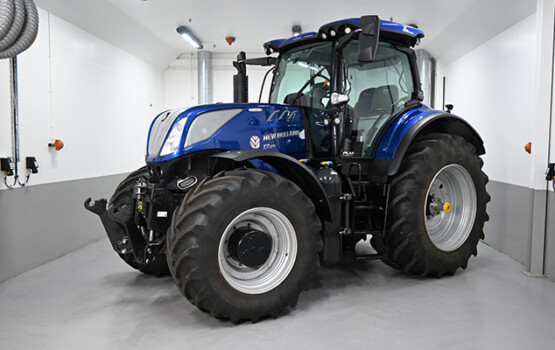Portal for more climate-friendly mobility
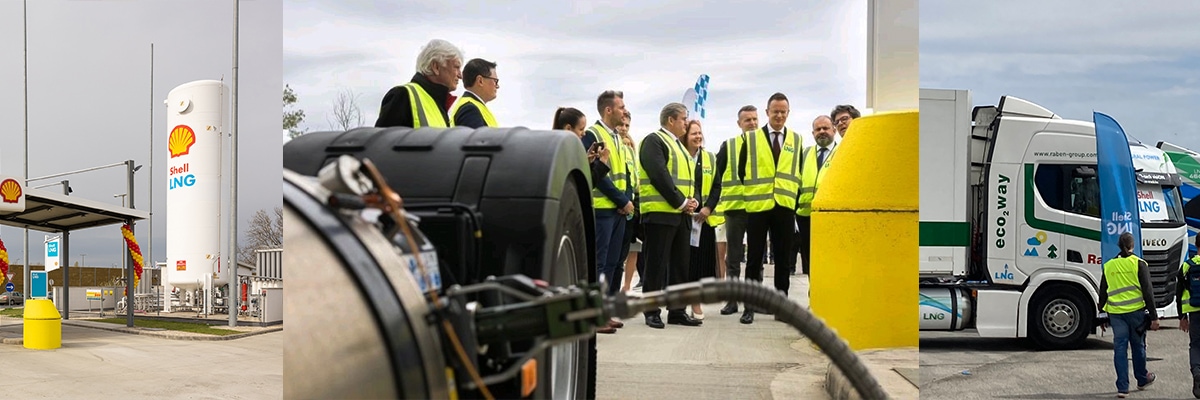
Gap in the LNG corridor closed
The new LNG fuelling station near the Hungarian capital Budapest will become an important hub for three corridors of European heavy goods traffic (Mediterranean, Orient/Eastern Mediterranean, Rhine-Danube). The Hamburg-Istanbul route can now be covered in a more climate-friendly way for LNG-powered trucks without detours and with only one refuelling stop.
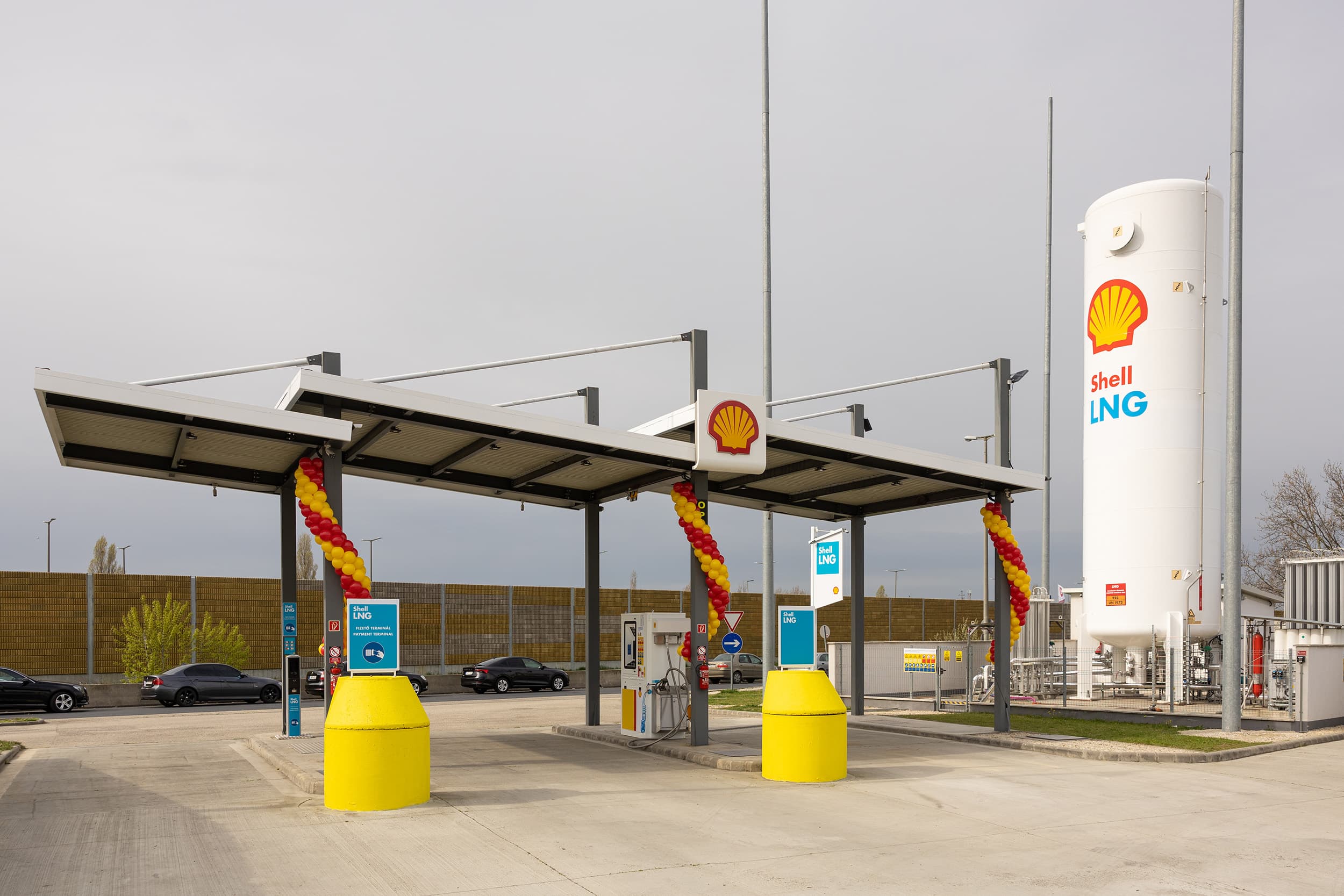 The new filling station of the Shell energy group near Szigetszentmiklós, close to the Hungarian capital Budapest, serves several important transport routes with LNG. Source: Shell Hungary
The new filling station of the Shell energy group near Szigetszentmiklós, close to the Hungarian capital Budapest, serves several important transport routes with LNG. Source: Shell Hungary
After Rotterdam (NL) and Antwerp (B), the Port of Hamburg in northern Germany is the third largest port in Europe. 8.3 million TEU – the abbreviation for Twenty-foot Equivalent Unit, which corresponds to a standard container about six metres long and two and a half metres high and wide – were handled here last year. Goods and merchandise amounting to around 83 million tonnes then have to be distributed from Hamburg. On the one hand, this is done by rail, but on the other hand, of course, above all via the road freight corridors that run right across Europe.
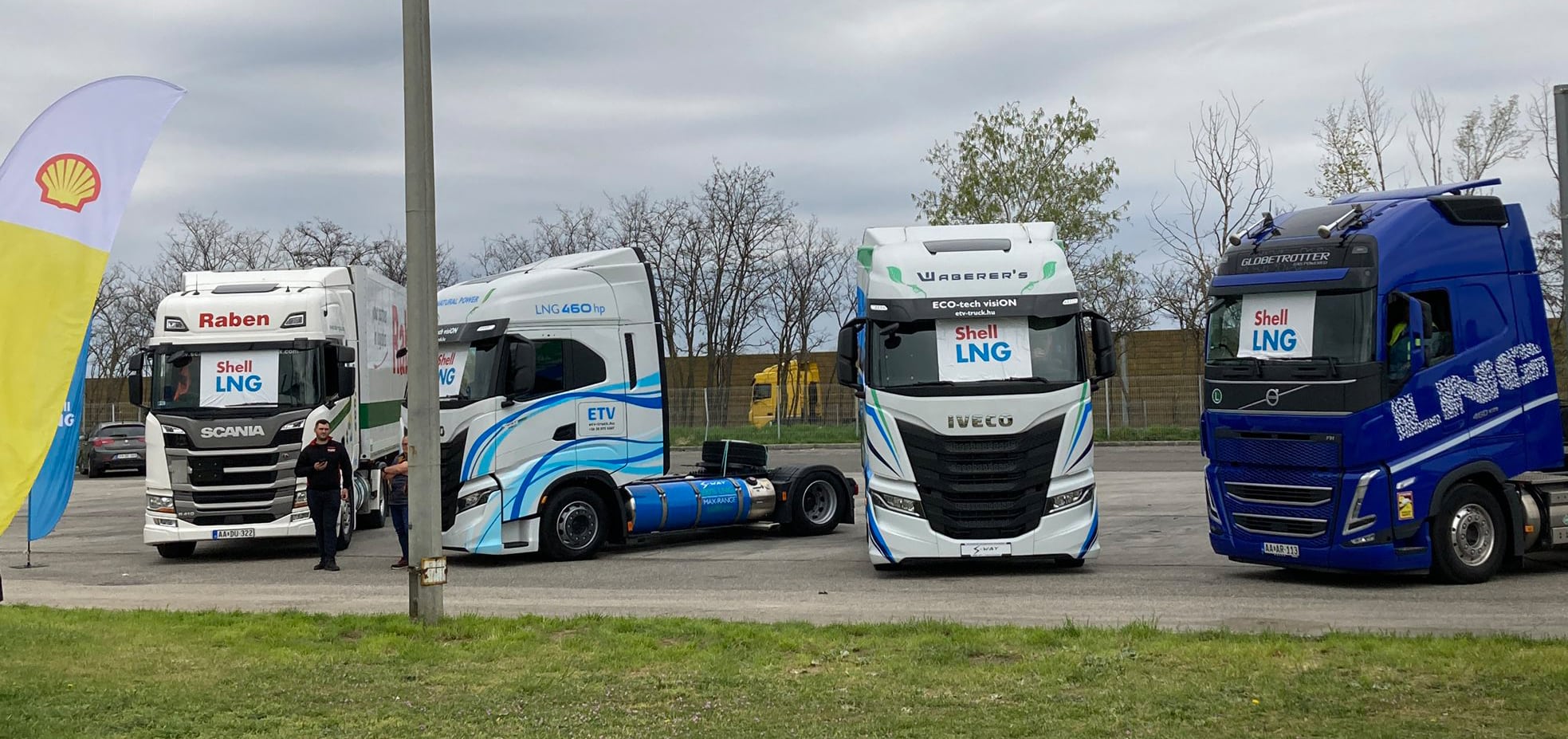 All the LNG-powered trucks now have an important place to refuel, making journeys on European freight and goods corridors more environmentally friendly. Source: Matthias Maegde
All the LNG-powered trucks now have an important place to refuel, making journeys on European freight and goods corridors more environmentally friendly. Source: Matthias Maegde
Three of these corridors are now clearly more environmentally friendly for LNG-powered trucks. The energy company Shell has opened Hungary’s first LNG filling station in Szigetszentmiklós near Budapest, thus closing a large gap in the LNG filling station network: Now, for example, the almost 2500 kilometre journey from the port of Hamburg across Europe to Istanbul in Turkey is possible with an LNG truck and, thanks to bio-LNG/LBG in the tank, even almost CO2-neutral! An important milestone for European freight transport. “The new Hungarian filling station will be an important part of Shell’s European LNG filling station network,” also explains István Kapitány, Global Executive Vice President at Shell. “It will support the supply of LNG-powered trucks in Hungary, but also for freight transport to countries such as Austria, the Czech Republic, Germany, Romania, Slovenia and Slovakia.”
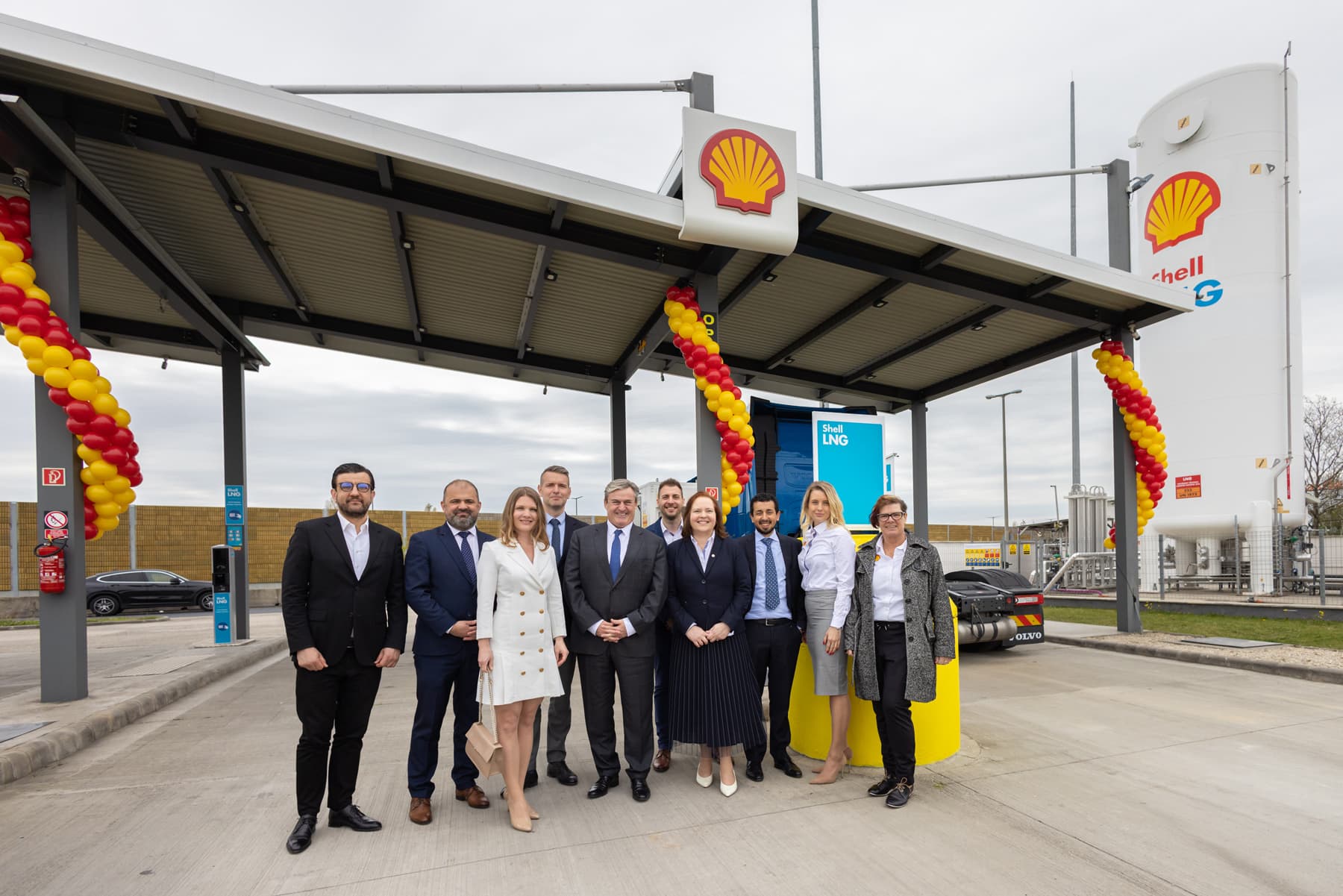 The Shell Hungary team is proud of this important milestone for the LNG supply network in Europe. Source: Shell Hungary
The Shell Hungary team is proud of this important milestone for the LNG supply network in Europe. Source: Shell Hungary
Heavy goods transport is arguably the most publicly visible segment of the global supply chain – trucks transport virtually everything modern society needs for daily life. By 2050, this transport of goods on the roads is even expected to triple. This makes it all the more important that the sector is fully decarbonised. Trucks powered by CNG and LNG and sustainable fuel such as biogas and LBG/Bio-LNG are already making this possible today.
The importance of the LNG station opening was also highlighted by the various partners from politics and business, such as Péter Szijjártó (Minister of Foreign Affairs and Trade of Hungary), Attila Steiner (Hungarian State Secretary for Energy Policy), Dóra Zombori (Deputy State Secretary for Energy Security), Zoltán Bóna (Member of the Hungarian Parliament), István Kapitány (Global Executive Vice President of Shell Mobility), Andrea Istenes Solti (Country Chair of Shell Hungary), András Bors (LNG Development Manager CEE at Shell) and Matthias Maedge (Secretary General of Gmobility).
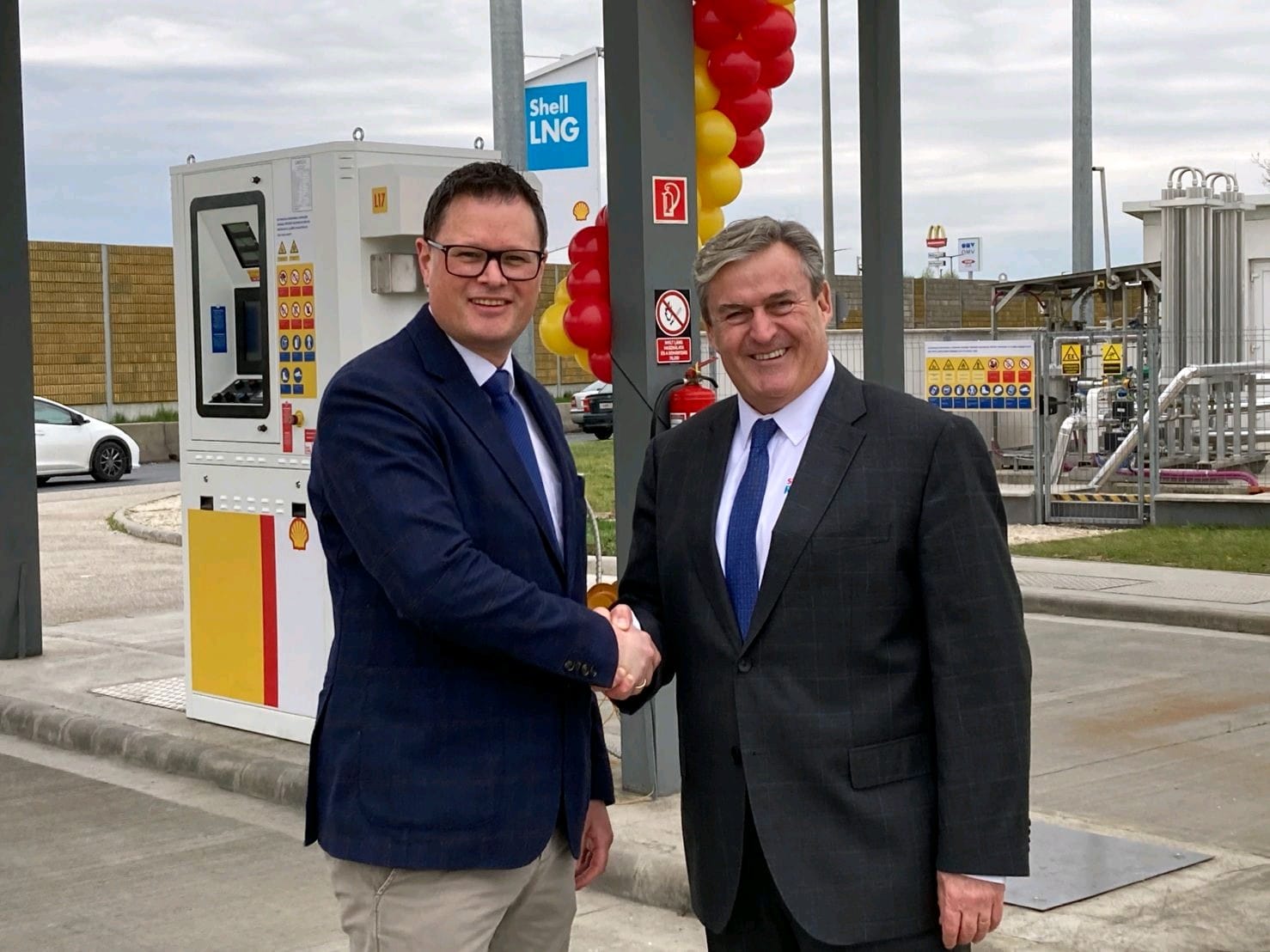 Matthias Maegde, Secretary General of Gmobility, congratulates István Kapitány, Global Executive Vice President of Shell Mobility, on the opening of Hungary’s first LNG filling station. Source: Matthias Maegde
Matthias Maegde, Secretary General of Gmobility, congratulates István Kapitány, Global Executive Vice President of Shell Mobility, on the opening of Hungary’s first LNG filling station. Source: Matthias Maegde
“Without meaningful measures, protecting the environment will remain merely a goal. Expanding the use of LNG in transport, especially in commercial road transport, is a big step towards reducing CO2 emissions worldwide,” said Péter Szijjártó. And the Minister of Foreign Affairs and Trade added: “If Hungary can play an important role in this process, it is an opportunity for us to strengthen our position as one of the twenty countries in the world that have increased their economic performance and reduced their emissions at the same time in recent years.”
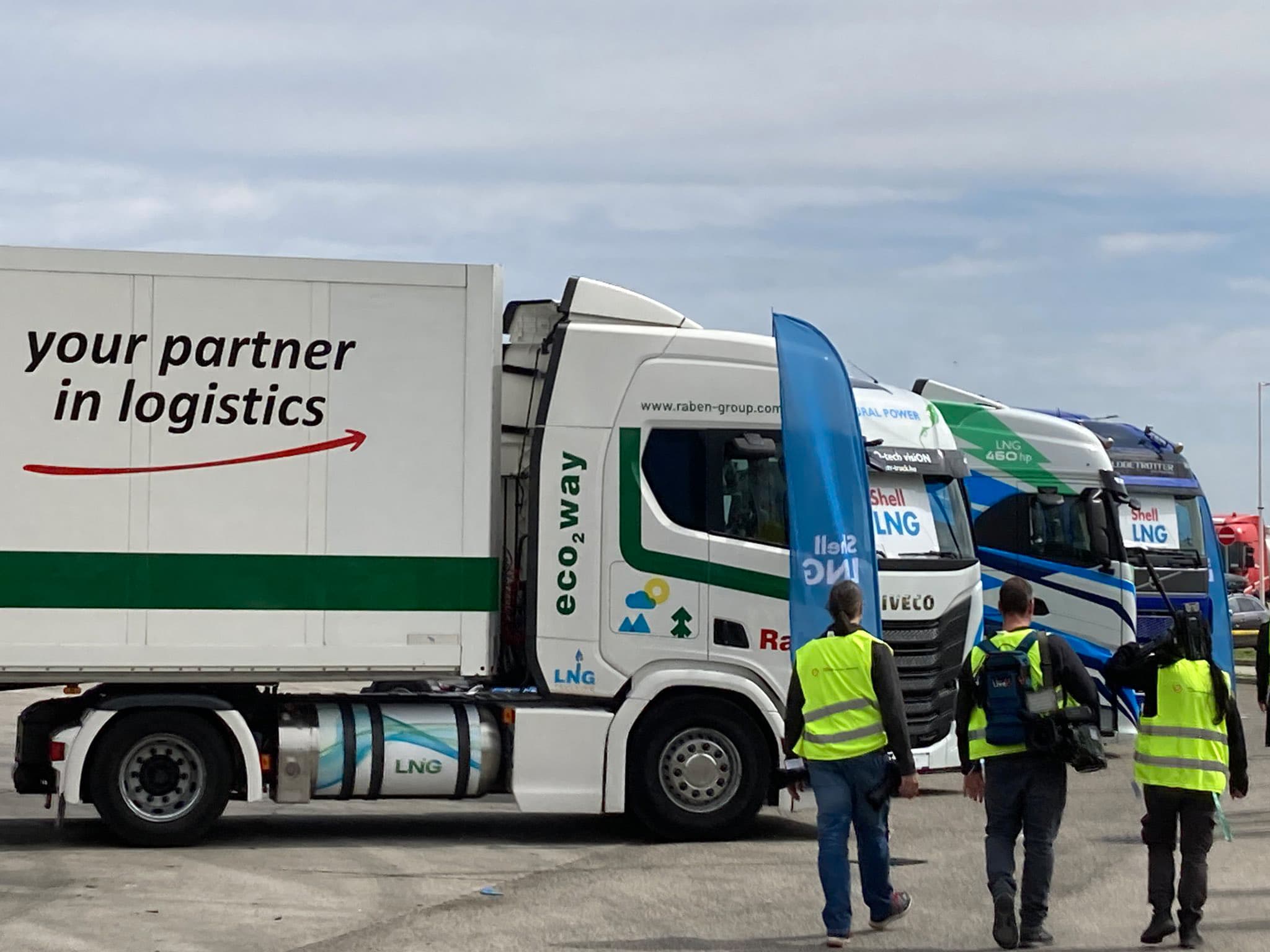 Trucks powered by LNG emit up to 22 per cent less emissions than conventional diesel trucks; if they fill up with LBG/Bio-LNG, they are even almost CO2-neutral on the road. Source: Matthias Maegde
Trucks powered by LNG emit up to 22 per cent less emissions than conventional diesel trucks; if they fill up with LBG/Bio-LNG, they are even almost CO2-neutral on the road. Source: Matthias Maegde
Shell Vice President István Kapitány adds: “Decarbonisation is one of the biggest challenges for the transport sector. Using and promoting LNG is one of the ways to achieve this goal and significantly reduce emissions compared to conventional fuels.” It is up to 22 per cent less emissions just using conventional LNG compared to a diesel truck. Even more savings are possible when liquefied, cryogenic biogas, i.e. LBG/Bio-LNG, is used.
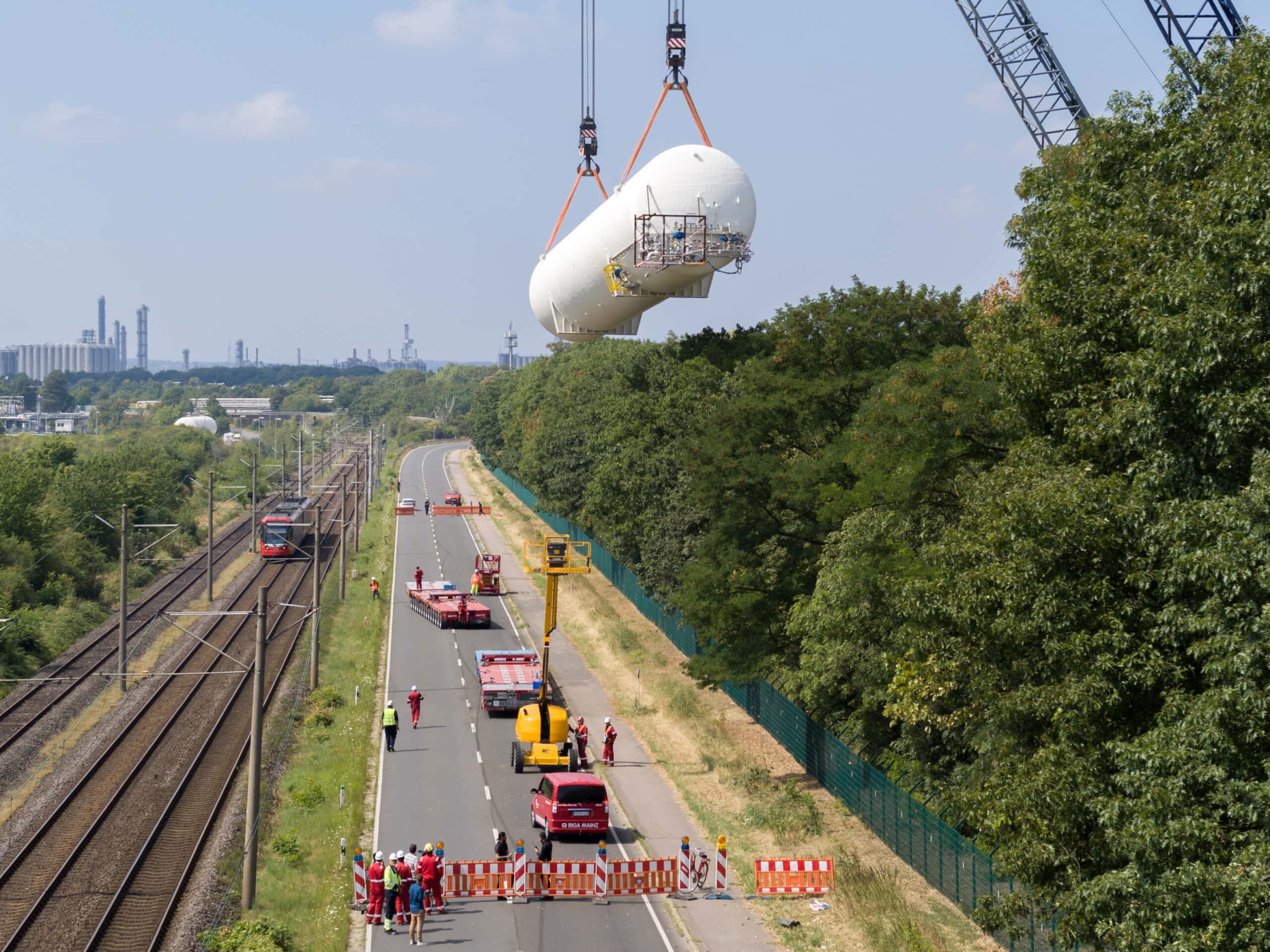 Groundbreaking for Germany’s largest biogas liquefaction plant was in February 2022, here one of the huge LNG tanks is being hoisted onto the site of the Shell Energy and Chemicals Park Rheinland. Source: Shell Germany
Groundbreaking for Germany’s largest biogas liquefaction plant was in February 2022, here one of the huge LNG tanks is being hoisted onto the site of the Shell Energy and Chemicals Park Rheinland. Source: Shell Germany
That is why the energy company Shell in Godorf (D) already started building a large bio-LNG plant last year. This alone should supply up to 100,000 tonnes of liquefied biogas and thus CO2-neutral fuel annually from the second half of 2023. The quantities produced in the Rhineland can cover the annual demand of about 4000 to 5000 LNG-powered trucks and thus help save millions of tonnes of CO2 in heavy goods traffic every year. (jas, 20 April 2023)
You might also be interested in
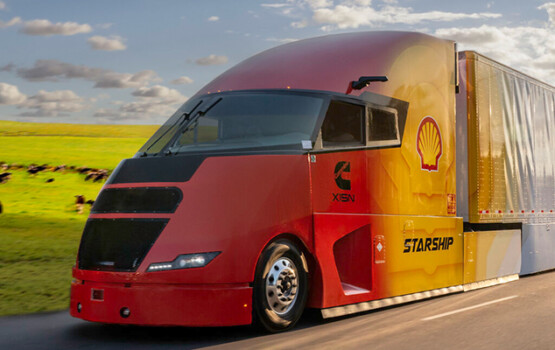
Shell Starship on record hunt
